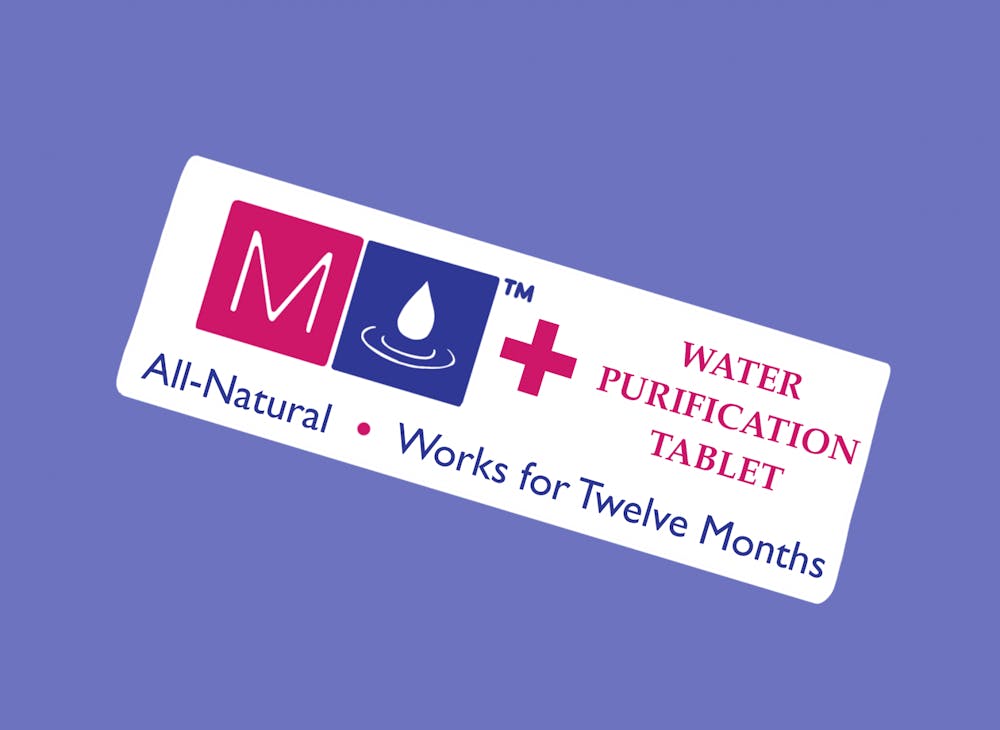Per the World Health Organization, 785 million people lack basic drinking water and 2 billion people drink water contaminated with feces. The effects of drinking contaminated water include diseases — such as cholera and dysentery — and ultimately, death. In an effort to provide an alternative to the lack of clean drinking water globally, James Smith, environmental and civil engineering professor and chief technology officer at Silivhere Technologies, set out almost 10 years ago to create a product that would be able to disinfect the water.
“I felt like we could do a lot more good by addressing this issue of global health and water, not just with a U.S. focus, but with a developing world focus, by looking at the people at the bottom of the wealth pyramid and how we can best help them get safe water,” Smith said.
Smith’s research lab developed a ceramic tablet small enough to fit into the spout of any water container or narrow bottle. The porous ceramic tablet, named the MadiDrop+, disinfects the water overnight due to the silver ions embedded in it. When placed in a water storage container, the water oxidizes the silver converting it to silver ions, which then in turn disinfects microbial pathogens.
“You just drop [the MadiDrop+] in your water storage container, and just keep filling up the container every night and then the next morning, it’s safe to drink.” Smith said. “[The product] treats 20 liters [of water] a day for 12 months, so it treats over 7,000 liters per year with one MadiDrop.”
While the current product on the market is a step forward from the original product, Smith and his team are ready to begin a third generation of the MadiDrop+ to kill more harmful pathogens that lurk in drinking water. The new generation of the MadiDrop+ tablet was made possible by a recent grant from the National Science Foundation’s Small Business Technology Transfer program.
With this next generation comes collaboration with more scientific professionals working in conjunction for a greater cause. Asst. Chemical Engineering Prof. Rachel Letteri has recently joined the initiative in order to increase the proficiency of the MadiDrop.
“[One of our goals for the third generation is] to bring our capabilities from just bacteria to bacteria and viruses,” Letteri said.
Silivhere Technologies, the manufacturer of the MadiDrop+, has played a role in the development, manufacturing and promotion of the technology pioneered by Smith and his lab. Chief Executive Officer Chris Conti views the NSF grant as an opportunity not only to increase the performance of the product but also as a way to support these communities in a way that respects social dynamics.
“There’s a tremendous need for this technology and I think [Prof. Smith] has come across the right balance of fusing technology with social acceptance,” Conti said.
In other words, not only does the MadiDrop+ greatly increase the safety of drinking water, but it also presents itself in a way that does not drastically alter one’s day-to-day life.
While Silivhere and the MadiDrop+ have gained traction in developing countries and are starting to bust into some larger relief agencies, the goal of the technology is much broader. Contaminated drinking water affects one’s health and wellness — and by extension, it affects one’s entire life and livelihood.
“[Silivhere] has sold 50,000 to 60,000 MadiDrops being used in over 40 countries,” Smith said. “That’s a lot but we want to continue to make the product better and this research is allowing us to make the product better.”
The MadiDrop+ has already helped people across the world improve their lives through the quality of their drinking water. However the hopes and dreams of the Silivhere team do not stop there. The team hopes to reach even more relief agencies and countries.
“We feel like we’ve got a product that really could have an impact on global health,” Smith said. “Ideally, we would like to be getting this MadiDrop in the hands of millions of people around the world.”







